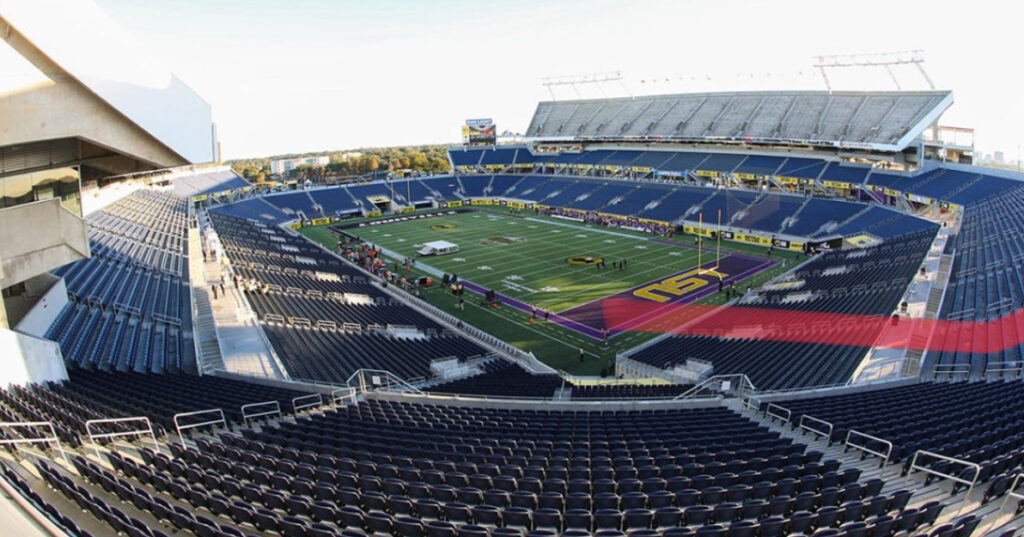(Manhattan, NY) The potential of not playing college football in 2020 exists, whether you want to admit it or not
What was once unthinkable has quietly become a discussion point and concern throughout college athletics. Will the coronavirus pandemic force the cancellation of the 2020 college football season?
With it already having taken out the NCAA Tournament and the remainder of 2019-20 season, including the College World Series, athletic departments are looking ahead to football as the next major event on the collegiate sports calendar.
“I am not trying to be overly pessimistic, but I’m doubtful we’re going to have a 2020 football season, NFL or college,” said Warren K. Zola, a respected expert on sports law and executive director of Boston College’s Carroll School of Management. “That’s just me. I don’t think it’s a foregone conclusion that we’re all back over the summer.”
From a view more than five months from kickoff on Aug. 29, that concept is hard to comprehend.
Just pause for a moment and consider where we are right now as a country with the coronavirus. With 72 percent of Americans believing containment will take a few months or longer, 57 percent say the battle with the coronavirus is “going badly,” according to a CBS News poll. There are currently 55,330 confirmed cases in the United States with 804 deaths, and neither the testing rate nor the infection rate has reached its peak.
Now imagine, five months from now, jamming 100,000 fans on a steamy Saturday afternoon into a stadium to watch 22 men in close proximity on any given snap running 150-plus plays.
That’s the furthest thing from social distancing.
It hit Texas A&M athletic director Ross Bjork this week when the 2020 Tokyo Olympics were postponed. That event was set to take place roughly a month before the start of the college football season (July 24 to Aug. 9). Olympic officials finally concluded it was not wise for 11,000 athletes from all over the world to congregate for two-plus weeks.

“With that news right there, then that starts creeping into the football season and training camps and scheduling,” Bjork said. “… I don’t know how you operate [if the season is canceled]. Where would the bailout come from? Because we would all have to have one if we were going to maintain any sort of normalcy.”
Since about March 12, when the NCAA Tournament was canceled, the nation in general has been hunkered down facing a new normal: trying to stop the spread of the coronavirus.
That has left college athletic programs pondering the possible loss of their top revenue generator. The cancellation of the 2020 college football season — or even a drastic reduction in its games — would dwarf missing out on a month of March Madness. Football is the nation’s most popular sport. The country’s attachment to it — economically and emotionally — cannot be underestimated.
College football as an enterprise accounted for $6.5 billion in revenue during the 2018-19 academic year, according to Andy Schwarz, a partner and consulting expert with California-based law firm OSKR. That’s an average of $51 million per school.
In general, 80 percent of FBS athletic budgets are made up of football revenue.
“Just the thought of it, I think we’re all thinking about [losing the season],” Georgia AD Greg McGarity said. “Now, what does that mean? That’s what is going to be defined here over the next two or three weeks.”
Or more.
Spring practices and spring games are already canceled. Players have moved home to study remotely. Recruiting activities have been suspended, too.
Article courtesy of CBS Sports – Dennis Dodd
















